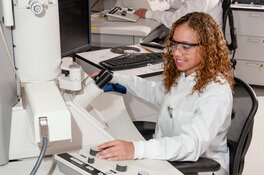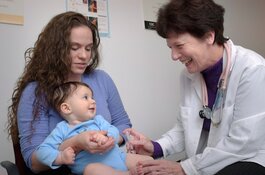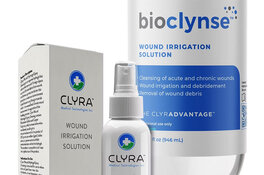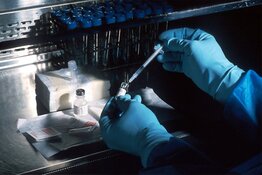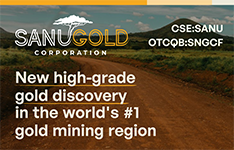Sernova Biotherapeutics Inc. (SVA:TSX.V; SEOVF:OTCQB; PSH:XETRA) got approval from the Data and Safety Management Board (DSMB) to continue the ongoing Phase 1/2 clinical trial assessing its Cell Pouch Bio-hybrid Organ as a functional cure for type 1 diabetes, according to a news release.
Cell Pouch is a device that is implanted in the human body and once vascularized, therapeutic cells, insulin-producing islets in this case, are transplanted into the pouch to deliver treatment.
Specifically, after its recently scheduled annual review of Sernova's trial data, the DSMB greenlighted enrollment of the final patient in the Phase 1/2 study's Cohort B, seven patients transplanted with an optimized 10-channel Cell Pouch. The biotech consulted with the board about Cohort C and is now preparing to advance this part of the study.
"We have collected a significant amount of data in our ongoing clinical trial, and results to date suggest that we are tracking towards meeting our key clinical endpoints," Sernova President and Chief Executive Officer Jonathan Rigby said in the release.
Data generated from the company's Phase 1/2 study so far show that islet cells survived in type 1 diabetes patients from one year to more than five years and supported insulin independence after protocol-specified treatment. Further, histological analysis showed no detrimental fibrosis of the Cell Pouch.
The trial's primary endpoint is the demonstration of safety and tolerability of islet transplantation into Cell Pouch as a treatment for type 1 diabetes in patients with hypoglycemia unawareness and a history of severe hypoglycemic episodes.
"We believe that Sernova's Cell Pouch Bio-hybrid Organ, that is prevascularized prior to islet transplantation, is the only implantable and retrievable cell containment system for islet engraftment and function currently in U.S. clinical trials," noted the release.
David Burke, Vice President, Investor Relations, also told Streetwise, "We are very excited about the positive direction we are heading and being in a position to advance our clinical trial."
Pursuing a Second Indication
Headquartered in Ontario, Canada, this life sciences firm is developing regenerative medicine therapeutics for chronic diseases, which combine its Cell Pouch Bio-hybrid Organ with stem cells. Sernova is one of the companies currently dominating the global live cell encapsulation market, according to Mordor Intelligence.
Recently, another biotech in the same space, Vertex Pharmaceuticals Inc. (VRTX:NASDAQ), discontinued VX-26, its type 1 diabetes cell therapy delivered via an implantable device, reported Dr. Douglas Loe, an analyst at Leede Financial Inc., in a March 31 research report. This is positive for Sernova, Loe wrote, for two reasons.
Dr. Joseph Pantginis, with H.C. Wainwright & Co., for one, has a price target on the company suggesting a 3,429% uplift. According to him, Sernova is a Buy.
One, the program discontinuation, after VX-264's Phase 1/2 trial failed, eliminated a competing technology that could have captured market share even though Vertex's other competing regenerative program, in the same indication and using the same VX-880 cell therapy, remains active. Two, in the failed trial, C-peptide production did not meet its efficacy threshold, and Vertex did not say why. According to Loe, it might have been due to the immunologic attachment of islet cells in the delivery device, which Vertex neither denied nor confirmed.
"We do interpret Vertex's decision to continue VX-880 Phase 3 testing as a positive endorsement by the firm on the long-term prospects of regenerative medicine in type 1 diabetes, an endorsement we separately share through the lens of Cell Pouch and the already-documented physiological cell function it preserves," Loe clarified.
In another recent development, Sernova received U.S. Food and Drug Administration approval to proceed with a Phase 1 trial evaluating Cell Pouch as a regenerative treatment for hypothyroidism in patients post partial or radical thyroidectomy, Streetwise Reports reported.
Also last month, the Canadian biotech appointed Dr. Pericles "Perry" Calias as its chief development officer and head of research and development (R&D), it announced in a news release. Calias brings 20 years' experience in drug development from discovery to approval, having held leadership positions at firms such as Revolo Biotherapeutics and Shire Human Genetic Therapies Inc.
Sector Growth Projected
Continued growth is forecasted for the global live cell encapsulation market, encompassing regenerative medicine/cell transplantation and drug delivery, according to Global Market Insights. By 2032, the market is expected to reach US$370 million (US$370) in value from US$251M in 2022. This projection reflects a 3.8% compound annual growth rate during this forecast period.
Today, live cell encapsulation is being used in regenerative medicine, specifically in diabetes, to replace disease or damaged tissues, and in drug delivery, notably in Parkinson's disease, Grand View Research noted. The efficacy in diabetes and the increasing diabetic population around the world should drive demand for this method and, in turn, contribute to market growth. it is estimated that 537 million (537M) people are currently living with type 1 or type 2 diabetes around the world, and this number is projected to rise to about 783M by the year 2045, according to an October 2024 Statista report.
"The rising number of cases creates a huge opportunity for the market player[s] to bring the novel live cell encapsulated drug for treating people with diabetes, expected to boost the market growth," Mordor noted.
Increasingly, live cell encapsulation is being developed to administer therapeutics for various other chronic medical disorders, including cancer, anemia, heart failure and autoimmune diseases, according to Mordor Intelligence. This will continue to spur market expansion during the forecast period as well.
Another growth driver, indicated Global Market Insights, is the benefits of using live cell encapsulation. When used in regenerative medicine, cells can be released under regulated conditions and can be transported to a specific area of the body while being shielded from an immune response. When employed for drug delivery, benefits include enhanced therapeutic effects, lowered drug dose, reduced cytotoxicity, improved patient convenience, and better patient compliance.
Other ongoing contributors to market growth are rising public and private investments to fund product development and increasing research programs to establish the clinical efficacy of the cell encapsulation process, according to Mordor.
In contrast, factors expected to inhibit market growth are the high cost of good-quality raw materials and the adoption of alternative therapies.
In terms of geography, Mordor pointed out that North America is projected to dominate the live cell encapsulation market at least through 2030. This is due to the presence of key players, rising per capita healthcare expenditure, increasing funding for and investment in R&D programs in the U.S. and Canada, and established healthcare infrastructure.
The Catalysts: Cohort, Trial Launches
Sernova has potential stock-boosting events coming for each of its two clinical programs. Regarding diabetes, as indicated in the latest news release, enrollment of Cohort C is expected to begin in H2/25.
"We have made a great deal of strategic, operational, and financing progress over recent months, and as a type 1 diabetic myself, I am truly excited about the potential of our type 1 diabetes Cell Pouch Bio-hybrid Organ and look forward to advancing our clinical trial to a positive conclusion," Rigby wrote.
Once Cohort C is completed, Sernova plans to launch a type 1 diabetes clinical trial of the Cell Pouch Bio-hybrid Organ with induced pluripotent stem cell islet-like clusters in collaboration with Evotec AG (EVTCY:OTCPK).
As for hypothyroidism, Sernova could commence Phase 1 of the Phase 1/2 trial by Q3/25, estimated Loe in his March 3 research report.
Analyst: 3,429% Return Possible
Analysts are bullish on Sernova. Dr. Joseph Pantginis, with H.C. Wainwright & Co., for one, has a price target on the company suggesting a 3,429% uplift. According to him, Sernova is a Buy.
The biotech should gain visibility due to the potential for Cell Pouch in multiple indications, starting with type 1 diabetes, the analyst purported in his recent research report. Pantginis estimated that the Cell Pouch system could hit the U.S. market in 2027 with sales of US$2.3 billion, a conservative amount though because it is based on only a 2.1% market penetration in the hypoglycemic unawares population.
"We believe the market could be significantly larger with the broader type 1 diabetes population and the continuing dramas surrounding insulin supply and its costs," wrote Pantginis.
Similarly, Leede Financial's Loe rates Sernova Speculative Buy. His target price on it implies a potential return of 782%.
 Streetwise Ownership Overview*
Streetwise Ownership Overview*
Sernova Biotherapeutics Inc. (SVA:TSX.V; SEOVF:OTCQB; PSH:XETRA)
"On the horizon," Loe commented, "we do expect Sernova's advances in thyroid disease and toward commencing formal human testing with Evotec's iBeta to be solid value drivers for the firm, pending capital availability and sustained partnership participation in Cell Pouch clinical development."
Ownership and Share Structure
According to Refinitiv, about 4.1% of the company is held by insiders and management and approximately 0.05% by institutions. The rest is retail.
Top shareholders include Director Steven Sangha with 3.97%, Chief Financial Officer James Parsons with 0.12%, CATAM Asset Management AG with 0.05%, and Chief Business Officer Modestus Obochi with 0.02%.
Sernova has 328.48 million outstanding shares and 315.01 million free-float traded shares.
Its market cap is CA$65.76 million. It trades in a 52-week range between CA$0.61 and CA$0.17.
| Want to be the first to know about interesting Medical Devices and Regenerative Medicine investment ideas? Sign up to receive the FREE Streetwise Reports' newsletter. | Subscribe |
Important Disclosures:
- Sernova Biotherapeutics Inc. has a consulting relationship with Street Smart an affiliate of Streetwise Reports. Street Smart Clients pay a monthly consulting fee between US$8,000 and US$20,000.
- As of the date of this article, officers and/or employees of Streetwise Reports LLC (including members of their household) own securities of Sernova Biotherapeutics Inc.
- Doresa Banningwrote this article for Streetwise Reports LLC and provides services to Streetwise Reports as an independent contractor.
- This article does not constitute investment advice and is not a solicitation for any investment. Streetwise Reports does not render general or specific investment advice and the information on Streetwise Reports should not be considered a recommendation to buy or sell any security. Each reader is encouraged to consult with his or her personal financial adviser and perform their own comprehensive investment research. By opening this page, each reader accepts and agrees to Streetwise Reports' terms of use and full legal disclaimer. Streetwise Reports does not endorse or recommend the business, products, services or securities of any company.
- This article does not constitute medical advice. Officers, employees and contributors to Streetwise Reports are not licensed medical professionals. Readers should always contact their healthcare professionals for medical advice.
For additional disclosures, please click here.


